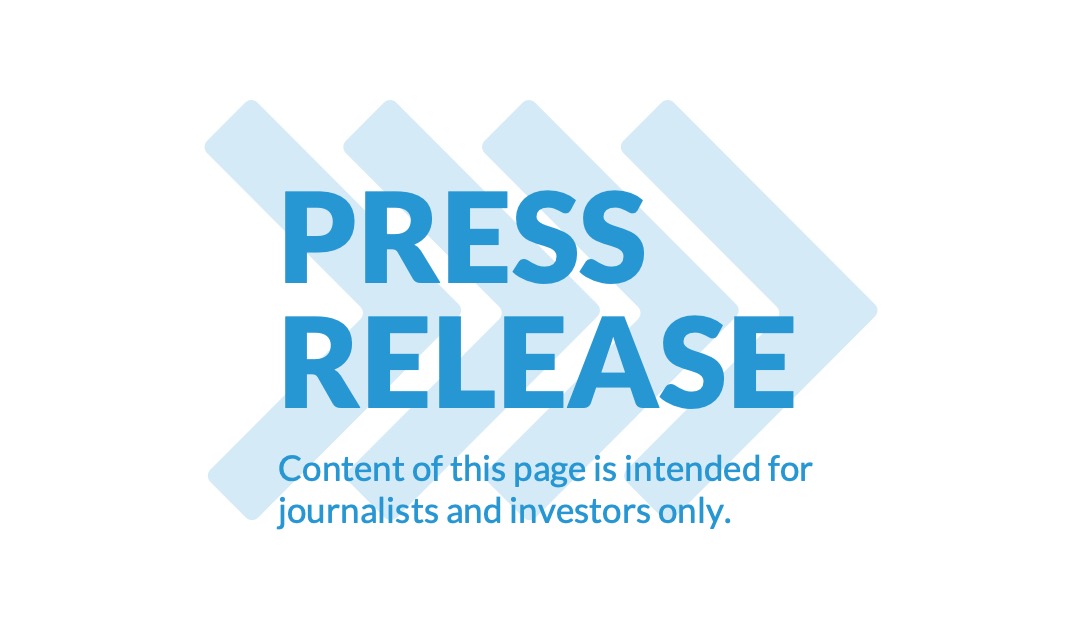Ipsen opts-in to join Exelixis with ongoing development of Cabometyx® for people living with a form of thyroid cancer, based on promising interim results
• Opt-in decision is based on interim results from the pivotal COSMIC-311 Phase III trial in people living with radioiodine-refractory differentiated thyroid cancer1
• Detailed results will be presented at the upcoming 2021 American Society of Clinical Oncology (ASCO) Annual Meeting
• Participation in the collaboration will provide Ipsen with access to full trial data to support potential future regulatory submissions
PARIS, FRANCE, 11 May 2021 – Ipsen (Euronext: IPN; ADR: IPSEY) today announced it has exercised its option to collaborate with Exelixis, Inc. (Exelixis) in the pivotal COSMIC-311 Phase III trial. COSMIC-311 is evaluating Cabometyx® (cabozantinib) 60 mg versus placebo in people living with radioiodine-refractory differentiated thyroid cancer (DTC) who have progressed after up to two prior vascular endothelial growth factor receptor (VEGFR)-targeted therapies.2 Radioactive iodine (RAI) is a treatment option for DTC when patients are at high risk of disease recurrence, have incompletely resected cancer, or distant metastases.3 Patients who develop RAI-refractory DTC, whereby they are resistant to RAI treatment, typically have a poor prognosis with an estimated survival of three to five years on average.4
Howard Mayer, Executive Vice President and Head of Research and Development at Ipsen, commented:
“A planned interim analysis of the COSMIC-311 Phase III trial has shown promising and clinically meaningful results in the use of Cabometyx in people living with radioiodine-refractory differentiated thyroid cancer who have progressed after prior therapy. We are delighted to build on our strong foundation and join Exelixis to further evaluate, and to work with regulatory authorities on, the potential of Cabometyx in a patient population who currently have limited treatment options.”
Results from the planned Phase III interim analysis of COSMIC-311 showed that the trial met the co-primary endpoint of demonstrating significant improvement in progression-free survival.1 The detailed results from the analysis will be presented at the forthcoming ASCO Annual Meeting, taking place virtually from 4 to 8 June 2021.
Ipsen has an exclusive collaboration agreement with Exelixis for the commercialization of Cabometyx outside of the U.S. and Japan. Following the decision to opt-in to the COSMIC-311 trial, Ipsen gains access to the results to support potential future regulatory submissions in its territories.
The U.S. Food and Drug Administration (FDA) granted Breakthrough Therapy Designation for Cabometyx in February 2021 as a potential treatment for people living with DTC who have progressed following prior therapy and who are RAI-refractory (if RAI is appropriate).
For further information:
| Contacts | |
| Investors | |
| Craig Marks Vice President, Investor Relations +44 7584 349 193 |
Adrien Dupin de Saint-Cyr Investor Relations Manager +33 6 64 26 17 49
|
| Media | |
| Giovanni Asta Head of Global Franchises Communication +39 335 744 07 34 |
Emma Roper Global Franchise Communications Manager +39 335 744 07 34 |
References
1. Exelixis announces cabozantinib significantly improved progression-free survival of COSMIC-311 Phase 3 pivotal trial in patients with previously treated radioiodine-refractory differentiated thyroid cancer. News release. Exelixis, 21 December 2020. Last accessed: April 2021. Available at: https://ir.exelixis.com/news-releases/news-release-details/exelixis-announces-cabozantinib-significantly-improved
2. Brose MS. et al. A phase 3 (COSMIC-311), randomized, double-blind, placebo-controlled study of cabozantinib in patients with radioiodine (RAI)-refractory differentiated thyroid cancer (DTC) who have progressed after prior VEGF-targeted therapy. J Clin Oncol. 2019;37(suppl 15):TPS6097. doi: 10.1200/JCO.2019.37.15_suppl.TPS6097
3. Cancer.net. ASCO Answers: Thyroid Cancer Fact Sheet. Last accessed: April 2021. Available at: https://www.cancer.net/sites/cancer.net/files/asco_answers_thyroid.pdf.
4. Fugazzola L. et al. 2019 European Thyroid Association Guidelines for the Treatment and Follow-Up of Advanced Radioiodine-Refractory Thyroid Cancer. Eur Thyroid J. 2019;8:227–245. doi: 10.1159/000502229.
5. Sung. H et al. Global cancer statistics 2020: GLOBOCAN estimates of incidence and mortality worldwide for 36 cancers in 185 countries. CA: A Cancer Journal For Clinicians. doi: 10.3322/caac.21660.
6. Cancer.Net. ASCO. Thyroid Cancer: Introduction. Last accessed: April 2021. Available at: https://www.cancer.net/cancer-types/thyroid-cancer/introduction
7. Chen D. et al. Innovative analysis of distant metastasis in differentiated thyroid cancer. Oncol Lett 19: 1985-1992, 2020. doi: 10.3892/ol.2020.11304.
8. Worden F. Treatment strategies for radioactive iodine-refractory differentiated thyroid cancer. Ther Adv Med Oncol. 6:267–279. doi: 10.1177/1758834014548188.
Attachment

